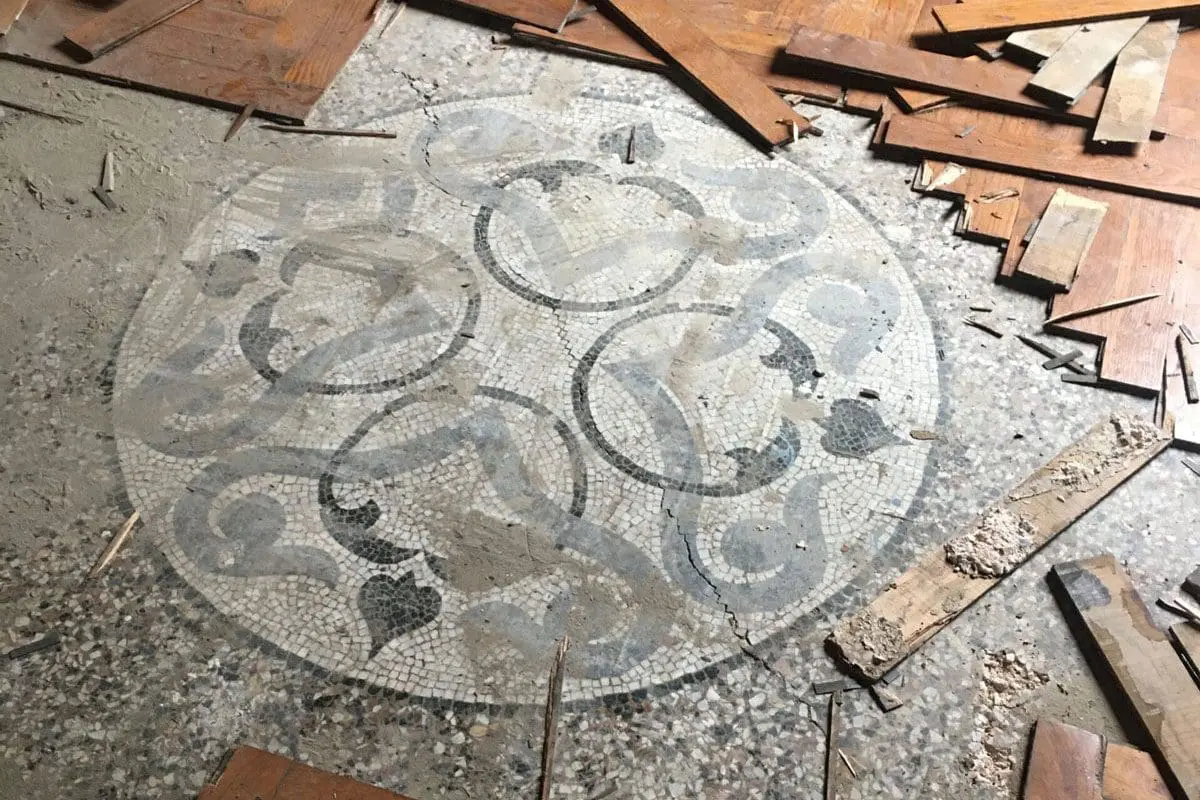At Recdi8, we have done many renovation projects for many clients over the years. At the start of any new project, we go through a list of items with our clients to ensure we have clearly defined achievable goals.
Here are our top 5 things to consider when starting a home renovation project.
BUDGET
The first thing to consider when starting a home renovation is your budget. This will determine the scope of the project and what renovations are possible. Set a realistic budget and stick to it as much as possible to avoid overspending.
Here are a few things to consider when creating a budget for your renovation:
Estimate Costs:
One of the most important things to do when creating a budget is to get an estimate of the costs involved in your renovation project. This will give you a good idea of how much money you’ll need to set aside, and you can use it as a starting point to plan the rest of your budget. You may want to get multiple estimates from different contractors to compare prices.
Prioritize Your Needs:
Once you have a rough idea of the costs involved in your renovation, you’ll want to prioritize your needs. Determine which aspects of the renovation are most important to you, and focus your budget on those. This will help you make the most of your budget and ensure that the most critical renovation elements are covered.
Allow for Contingencies:
Even with the best planning, unexpected problems can arise during a renovation project. You should set aside a contingency fund in your budget to account for this. This will help you cover unexpected costs that may come up during the renovation, such as unanticipated repairs or the need to replace a damaged component.
Be Prepared to Compromise:
A renovation project can be costly, so you’ll need to be prepared to compromise. Suppose you find that the cost of certain renovation elements is too high. You may need to look for alternative options or consider cutting back on specific features. This can help you stay within your budget and ensure you have enough money to cover all the most important aspects of the renovation.
Financing Options:
Depending on the cost of the renovation, you may need to consider different financing options. This could include a home equity loan, a personal loan, or a line of credit. These options can help you spread the cost of the renovation over a more extended period, making it more manageable. But consider the charges, interest, and overall financial implications of any financing.
Shop Around:
Don’t be afraid to shop around for materials, fixtures, and equipment. Compare prices between suppliers and contractors, and look for sales and discounts. This can help you save money on your renovation and stretch your budget further.
By creating a detailed budget and sticking to it as much as possible, you can help ensure that your home renovation project stays on track and is completed within the limits of your financial resources.
PURPOSE
Before beginning any renovations, think about the purpose of the project. Are you looking to update the appearance of your home, increase its value, or address any functional issues? Knowing the purpose of the renovation will help you make better decisions about what changes to make.
Defining the purpose of home renovations is an important step in the planning process, as it will help you make better decisions about what changes to make. Here are a few things to consider when thinking about the purpose of your home renovation project:
Increasing the Value of Your Home:
One of the most common reasons for renovating a home is to increase its value. Renovations, such as a kitchen or bathroom remodel or the addition of a bedroom or bathroom, can make your home more attractive to potential buyers and increase its value on the market.
Improving Functionality:
Another common reason for renovating a home is to enhance its functionality. For example, you may want to reconfigure the layout of your home to make it more spacious or more functional for your family’s needs. This could include adding a more open floor plan or creating more storage space.
Updating the Appearance:
Renovations can also be done to update the appearance of your home. This could include painting, updating fixtures, or replacing old flooring. A renovation of this kind can give your home a new look and boost your personal satisfaction with your living space.
Addressing Specific Issues:
Sometimes, home renovation projects are undertaken to address specific issues. This could include fixing a leaky roof, improving insulation, or addressing mold or other health hazards.
Personalization:
A renovation can also be an excellent opportunity to personalize your home to your own taste. This could include anything from remodeling the kitchen and bathrooms to installing new flooring and lighting and even getting creative with accent walls.
It’s essential to clearly understand your renovation project’s purpose, as it will help you stay focused on your goals and make better decisions about what changes to make. While you may have multiple reasons for renovating, having a clear primary focus will help guide decision-making and budgeting.
TIMING
Another important consideration is timing. Some renovations can be completed quickly, while others may take several months. Be sure to plan the timing of your renovation around any significant events or deadlines that may be affected by the construction.
Here are a few things to consider when thinking about the timing of your project:
Seasonal Factors:
Some renovations are more suited to particular seasons than others. For example, exterior work, such as painting or siding replacement, may be more feasible in the spring or summer when the weather is warmer. Conversely, indoor work, such as a kitchen or bathroom renovation, may be more practical during the fall or winter when a contractor is less likely to work outside.
Duration of the Project:
The renovation project’s duration should also be considered when planning the timing. A larger, more complex renovation may take several months, so you’ll need to plan accordingly and ensure the timing works for you.
Major Events or Deadlines:
If you have any major events or deadlines, such as the arrival of a new baby or the hosting of a large event, you’ll want to ensure that the renovation project is completed well in advance. Try to avoid scheduling the renovation during a time when it will disrupt your daily routine or cause undue stress.
Coordinating with Other Professionals:
Suppose your renovation project involves other professionals, such as architects or engineers. In that case, you’ll want to plan the timing of the project so that their services are available when you need them.
Availability of Materials:
Certain materials may only be available at certain times of the year. You’ll want to consider this when planning your project’s timing to ensure that everything you need is available when you need it.
Budget:
Some renovation needs to be done at a specific time due to budget considerations. Renovating during peak seasons can be more expensive, so you’ll also want to consider this when planning your project’s timing. Trying to get construction done in August in Europe when everyone is on vacation is an exercise in futility.
Overall, timing is a crucial aspect to take into consideration when planning a home renovation project. It is essential to consider different factors, such as weather, duration, significant events, professional’s availability, and budget, to ensure the work is done on time and with minimal disruption to your daily routine.
GENERAL CONTRACTOR
Consider hiring a professional general contractor to handle the renovation. A good general contractor will have the expertise needed to ensure that the work is completed on time, within budget, and to a high standard. A large part of our success is that in addition to being the project designer, we are the project’s general contractor.
Hiring a general contractor when doing home renovations is a smart decision for several reasons:
Experience and Expertise:
A good general contractor will have the professional experience to handle the renovation project from start to finish. They will know building codes and regulations and will be able to ensure that the work complies with these. They also have the experience to anticipate and troubleshoot any problems that may arise during the renovation process.
Time-saving:
A general contractor will take care of all aspects of the renovation, from obtaining permits to coordinating with subcontractors, allowing you to save time and focus on other things. This can be especially beneficial if you have a busy schedule or don’t have the skills or experience necessary to manage a renovation project independently.
Cost-effective:
A general contractor can help you stay within your budget by providing accurate cost estimates and identifying potential cost-saving measures. They will also have access to bulk prices on materials and can often negotiate better prices than an individual homeowner.
Quality Assurance:
A general contractor will take the necessary steps to ensure that the work is completed to a high standard. They will be able to recognize quality materials and know the proper installation techniques. They also should have the ability to supervise the sub-contractor, ensuring the quality of the work.
Safety:
Home renovation projects can be dangerous, especially if you’re not experienced with specific tools or techniques. A general contractor will have the necessary safety equipment and know how to use it properly. This can help prevent accidents and injuries while the work is being done.
Additionally, having a general contractor can ensure the work will be up to standard and gives you recourse if anything goes wrong. And in case of legal issues, a general contractor should have insurance to cover it.
PERMITS and REGULATIONS
Depending on the scope of the renovation, you may be required to obtain permits or comply with certain regulations. Before beginning the renovation, check with your local authorities and obtain the necessary permits and approvals. Obtaining permits and adhering to regulations are essential aspects of any home renovation project, as they ensure that the work is done safely and to code. Here are a few things to consider when it comes to permits and regulations for home renovations:
Building Codes:
Every municipality has its own building codes and regulations, which must be adhered to when undertaking a home renovation. These codes and regulations dictate everything from the type of materials used to how work must be done. A contractor will typically be familiar with the building codes and regulations in your area and will be able to ensure that the work meets these requirements.
Permits:
Depending on the scope of the renovation project, you may be required to obtain permits before the work can begin. This could include building permits, electrical permits, and plumbing permits. Permits are typically required for any renovation that involves structural changes, electrical work, plumbing, or gas lines. Before beginning the renovation, it is important to check with your local authorities and obtain all necessary permits.
Inspections:
Once the work is completed, you may be required to have the renovation inspected by the local authorities to ensure that it complies with the building codes and regulations. This could include things like electrical inspections, plumbing inspections, and final building inspections. The general contractor will typically take care of scheduling inspections but ask if they include it in their scope.
Zoning Laws:
Zoning laws also play a role in home renovation projects. It’s essential to check with your local authorities to ensure that the renovation you are planning is allowed under your area’s zoning laws if you are making any big changes. For example, if you want to add a second story to your home, you must ensure that it is allowed according to your area’s zoning laws.
Historic Preservation:
If your home is part of a historic district, you may be required to follow additional regulations when renovating. In such cases, changes to the home must be approved by a historic preservation commission. They must be consistent with the historic character of the district.
Environmental regulations:
You must comply with specific environmental regulations if your home renovation project involves work that may impact the environment, such as asbestos removal or lead paint abatement. Check with your local authorities to see if any rules must be followed.
By obtaining the necessary permits and adhering to the building codes and regulations, you can help ensure that your home renovation project is completed safely and to code. It is essential to take this process step seriously, as non-compliance may lead to additional costs, fines, and even legal issues.
GETTING STARTED
It sounds like a lot, and it takes a lot of effort to keep all these moving parts working together smoothly.
These are just the top 5 things to consider when starting a home renovation.
At Recdi8, we handle all of this and more for our clients. Renovating a home anywhere is a complex project. We have spent years streamlining our processes to keep our clients on time and budget.
Developing a Luxury property in Europe?
We help our clients turn their dreams into reality from the initial concept through a completed project.



